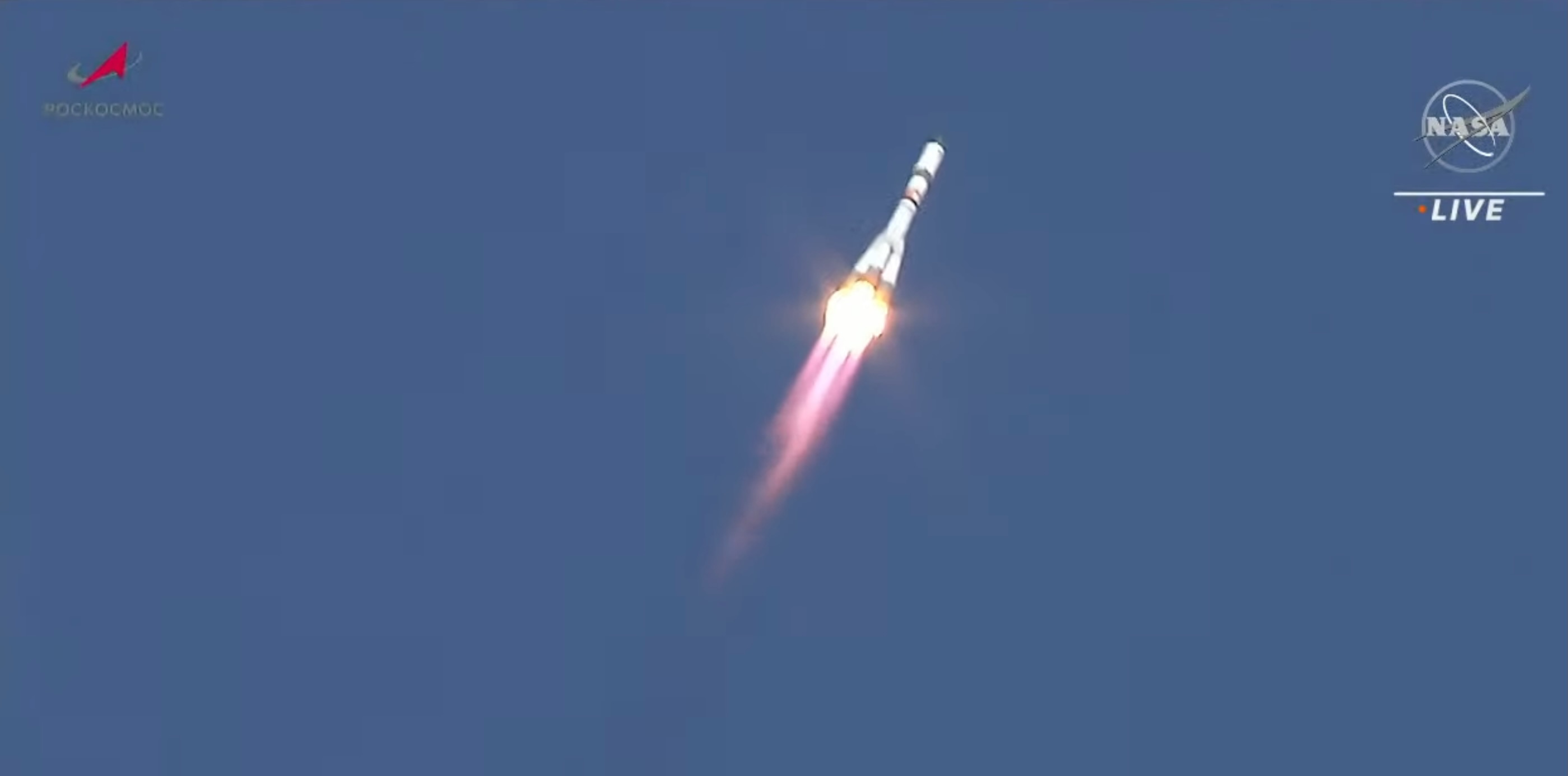A Russian cargo vessel is on its way to the International Space Station.
The robotic Progress 83 freighter lifted off atop a Soyuz rocket from the Russia-run Baikonur Cosmodrome in Kazakhstan on Thursday at 1:15 a.m. EST (0615 GMT; 11:15 a.m. local time in Baikonur).
If all goes according to plan, Progress 83 — which is carrying about 3 tons of food and other supplies — will chase the International Space Station (ISS) for two days, eventually docking with the orbiting lab at 3:49 a.m. EST (0849 GMT) on Saturday (Feb. 11) for a roughly six-month stay.
Related: How Russia's Progress spaceships work (infographic)

You can watch the orbital meetup here on Space.com, courtesy of NASA, beginning at 3 a.m. EST (0800 GMT) on Saturday.
Progress 83 will dock with the rear port of the Zvezda module, on the Russian side of the station. That port was vacated on Monday night (Feb. 6) by the Progress 81 cargo spacecraft, which had arrived at the ISS in June 2022.
The Progress is one of three currently operational robotic ISS resupply vessels, along with SpaceX's Dragon capsule and Cygnus, which is built by Virginia-based company Northrop Grumman.
Get the Space.com Newsletter
Breaking space news, the latest updates on rocket launches, skywatching events and more!
Cygnus and Progress are designed to burn up in Earth's atmosphere when their time in orbit is done, whereas Dragon is reusable; the SpaceX capsule makes ocean splashdowns and can fly again.
Another Russian vehicle will launch toward the ISS from Baikonur later this month, if all goes according to plan: A Soyuz spacecraft is scheduled to lift off on the night of Feb. 19.
The Soyuz is a crew-carrying vehicle, but this one will launch without anyone on board; it will replace another Soyuz that was damaged by an apparent micrometeoroid strike in mid-December. That other Soyuz has been declared unfit to carry astronauts back to Earth, unless an emergency evacuation of the station is required.
Editor's note: This story was updated at 1:30 a.m. ET on Feb. 9 with news of a successful launch.
Mike Wall is the author of "Out There" (Grand Central Publishing, 2018; illustrated by Karl Tate), a book about the search for alien life. Follow him on Twitter @michaeldwall. Follow us on Twitter @Spacedotcom or on Facebook.
Join our Space Forums to keep talking space on the latest missions, night sky and more! And if you have a news tip, correction or comment, let us know at: community@space.com.

Michael Wall is a Senior Space Writer with Space.com and joined the team in 2010. He primarily covers exoplanets, spaceflight and military space, but has been known to dabble in the space art beat. His book about the search for alien life, "Out There," was published on Nov. 13, 2018. Before becoming a science writer, Michael worked as a herpetologist and wildlife biologist. He has a Ph.D. in evolutionary biology from the University of Sydney, Australia, a bachelor's degree from the University of Arizona, and a graduate certificate in science writing from the University of California, Santa Cruz. To find out what his latest project is, you can follow Michael on Twitter.









